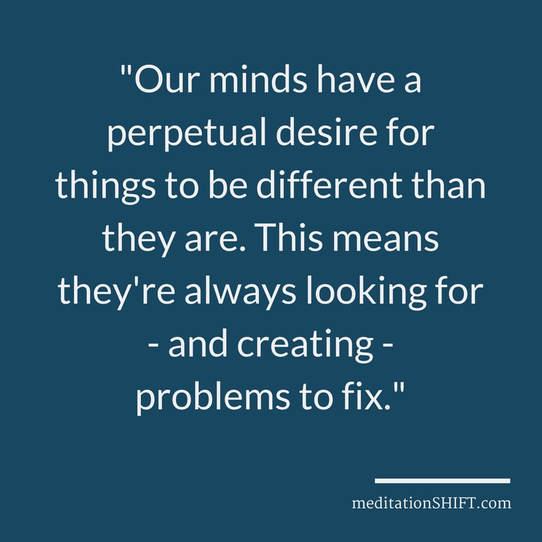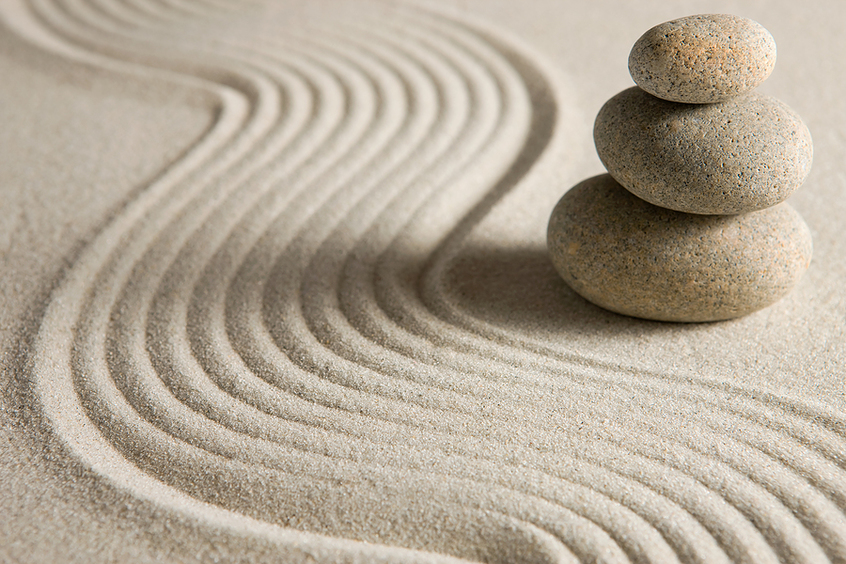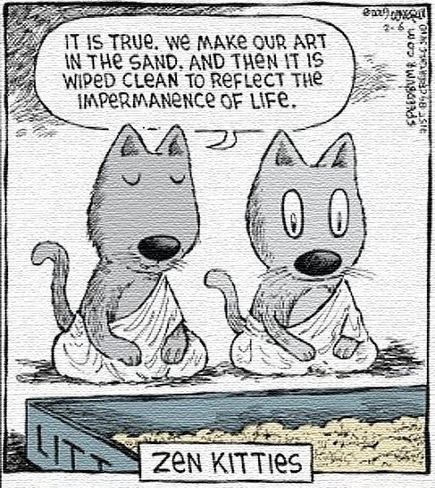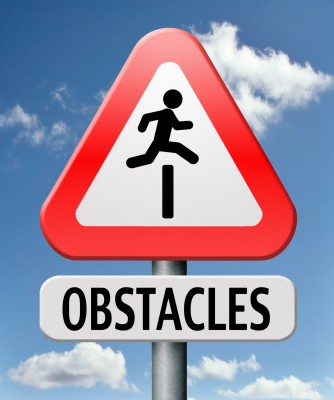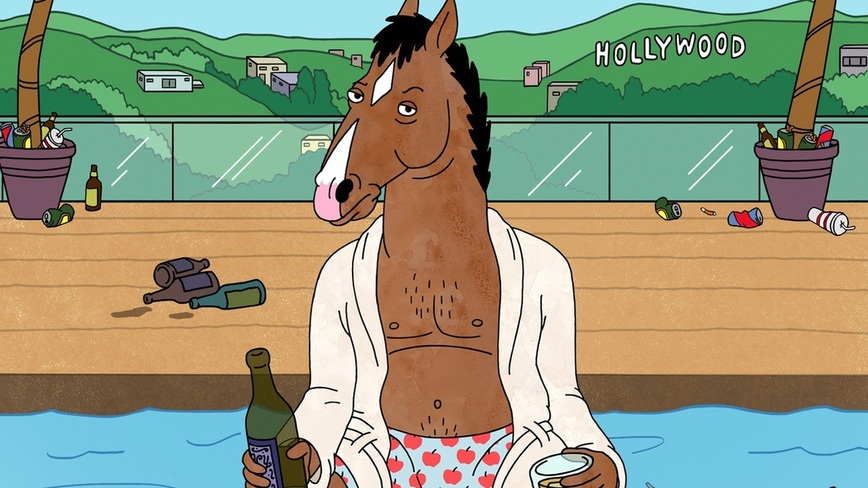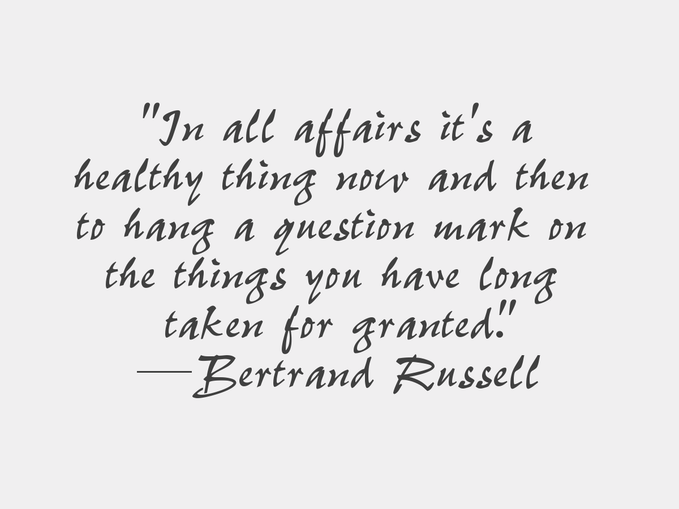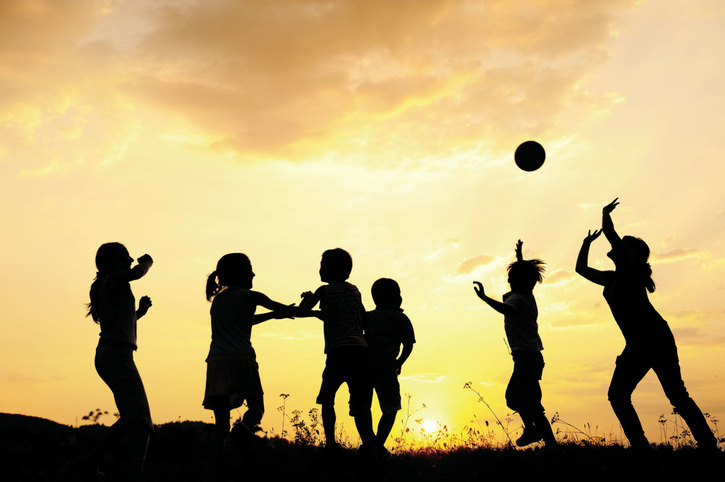|
We are excited to announce that the next version of our online program will be released in a few weeks.
Those of you who have purchased in the past, up to and including our latest version, will have free access to this release. Some of you have been with us since the beginning (in 2003), and have always gotten free access to updates and new versions. This new version sees substantial changes to the program, including a new concept - Awareness-based therapy. Thank you for your support over the past 15 years! Q: Will the existing program go away when the new one is released? A: No! The existing program isn't going anywhere - you will still have access to it as well as the new program when it's available. Q: Is there a change to the instructions I learned in the old program? A: We try to make things more clear and concise, but there is no change to the core instructions. An owner's guide to the mind. We published a new article on the site Everyday Mindfulness. It covers several topics, including:
Go to Everyday Mindfulness to read it. And, while you're there, visit their forums for great discussion on mindfulness-related topics. Held hostage by the drama your mind creates? We can help.We've revised our writing index to make it easier to find what you're looking for. We added a search box so you can look for articles by title or topic. And, we maintain a "most popular" list that is updated monthly. You can find everything here: Words: an index of articles from meditationSHIFT. Below are the ten most popular articles right now. Check the index above for the next 10! Stop being a victim of compulsive thinking. A short (2 minute) read with a cartoon. What more can you ask for? What type of meditation do I do? It's so confusing! Is there a certain type of meditation for "this," and one for "that?" And it seems there are a lot of different types (there aren't) - please help! (6-minute read) I want to overcome my anxiety by meditating! Can meditating help you overcome anxiety? Here's how to approach it. (3-minute read) How to meditate - short and simple. Basic instructions - easy to read and follow. (3-minute read) It's ok to be uncomfortable. Trying to avoid pain and chase pleasure only causes you to suffer - here's why. (5-minute read) The pursuit of happiness (or, stop looking for it "out there")! We spend our lives chasing happiness - looking for it in external objects (people, places, things). This is a trap of the mind, and leads to a life of "peaks and valleys." (5-minute read) Muddy water, mental noise, and Alan Watts. Analysis of a popular Alan Watts quote, and how it's relevant in today's busy world. (3-minute read) What Calvin and Hobbes taught me about mindfulness. (published on Medium) This is the most popular article we've ever written - short, insightful, and with cartoons! (4-minute read) You want enlightenment and liberation? Stop identifying with your thoughts! There are stories constantly running through your head, and most of them are not helpful. Stop believing what your mind tells you, and stop following it wherever it leads you. (5-minute read) My mind is too busy to meditate! One of many prevalent misconceptions. Everyone's mind is busy, which is why we need to meditate consistently. (5-minute read) Held hostage by the drama your mind creates? We can help.Chelsea, our Chief Mindfulness Officer and creator of "ARC: mindfulness for children," published a new article on the site Everyday Mindfulness. Here is an excerpt: "Every week I see new articles promoting mindfulness for children. As someone who has heralded this cause for more than a few years, I’m excited to see schools, child-care facilities, and parents recognizing the importance of teaching our kids to deal with their minds and the endless thoughts, emotions, and urges they produce. The effect this effort will have on the world in a decade or two can’t be overstated... In light of this movement, we need to ensure our children receive proper instruction when it comes to meditating. The same challenges that adults face in their practice affect our little ones as well, and it’s our responsibility to help them navigate the obstacles." Go to Everyday Mindfulness to read the rest. And while your there, visit their forums for great discussion on mindfulness-related topics. Held hostage by the drama your mind creates? We can help.We published a new article on the site Medium - it's since gone on to become one of our most popular articles of 2015! Here is an excerpt: "So we pull for him because we see ourselves in him. If he can figure it out, maybe we can figure it out. As we watch his life unfold, it’s easy to see everything he’s doing wrong — and we know exactly what he needs to do to fix it! BoJack is stumbling through a life-long existential crisis, and we feel that if we could just give him a little nudge in the right direction, he could escape suffering and fall into enlightenment. He’s so close. We all are — but it’s much easier to see in others…especially a talking horse. Rarely do we see it in ourselves, though." Go to Medium to read the rest (you don't need to create an account to read it, but if you have an account and enjoy the article, please "Recommend" it). You can find all of Jon's articles on Medium here. Held hostage by the drama your mind creates? We can help.Thanks for visiting - 2023 marks our 20th anniversary! This site is ad-free and supported by sales of our online courses. If you get value from what we write, click the link at the bottom of the page and read Day 1 of "Your inner narrative" to see if it's right for you...no email required. We all take things for granted, especially things that seem everlasting - for example, our health, our family, and even life in general. Their presence is usually steady and dependable, and because of this they start to blend into the backdrop of our daily lives. They have been there for a long time, so we assume they will always be there. Things seem permanent, so we convince ourselves they are. This is the fallacy of permanence. When we start to believe something will last forever, we set ourselves up for disappointment and suffering because nothing lasts unchanging over time. Impermanence is a fundamental truth. Our relationships, the circumstances and situations we find ourselves in, everything around us - all of it eventually changes. Most of us know this on an intellectual level, so why do we fall victim to the fallacy of permanence time and time again? If we know nothing lasts forever, why do we treat people and things as if they do? And, why would we ever take anything for granted? In part, taking things for granted is a function of habituation. When something is new, it stands out from the "background" and we pay lots of attention to it. When the novelty wears off, however, its hold on our attention weakens and we move on to something else. This is a natural tendency rooted in survival instincts, and usually happens without us realizing it. This doesn’t mean we stop caring about these things - when we take the time to consider them, we realize how valuable our friends and families are. And, we understand and acknowledge how fortunate we are to have them. The problem is, we don’t often pause to appreciate them or pay attention to their presence in our lives. Consider a child who gets a new toy. At first, they are delighted and want to play with it every chance they get. They want to take it everywhere, show it off to others, and even carry it to bed with them! As time passes and other new toys are introduced, however, they play with it less and less until it becomes forgotten in the bottom of the toy box. Forgotten, that is, until a parent decides to pull it out and give it to charity. Then the child cries, argues, and promises that they'll play with it - just please don’t give it away! Their sense of loss seems disproportionately acute considering the toy had been ignored for months; they had taken it for granted. When we don’t pay sufficient attention to something, we underestimate its value and forget to be grateful. We let it sink to the bottom of the toy box, so to speak, until we are threatened with its removal. This is ironic, since the things we are most likely to take for granted are what we value most, such as our livelihoods and loved ones. We fool ourselves into thinking they'll always be there when we need them, so we get blindsided when we lose them. And, once they are gone, we can’t help but think of all the time we could have spent paying attention to them and valuing them. This causes our sense of loss to become magnified through the lens of regret and self-recrimination, pulling us into the past to dwell and ruminate. Or, we begin to worry incessantly about losing something else in the future. We constantly ask ourselves “What if?” instead of enjoying the present moment. The good news is, there is a way out of this trap. Strengthening awareness and grounding yourself in the present moment makes you more likely to see the value in everything, and less likely to take things for granted. You also become more prepared for (and accepting of) change when it happens. Because change will happen. Staying present takes effort - it’s so much easier to cruise on autopilot and let our attention wander! But, by becoming more mindful, we can train ourselves to get better at focusing our attention on the things that really matter right here and now. (If you're looking for help strengthening awareness and staying present, we have a free guide here.) <>
Our minds constantly create stories about what we experience, and we spend most of our time caught up in those stories. This results in the stress and struggles of daily life. "Your inner narrative" (our 15-day online course) can help you break that pattern. Read Day 1 here (no email required). We published a new article on the site Everyday Mindfulness. Here is an excerpt: "It's a wonderful ride, full of sights, sounds, and engaging activity. The problem is, I sometimes make it without ever noticing what's going on around me. If pressed on the issue, the only evidence I have that the ride took place is the sweat on my brow and the half-empty water bottle clipped to the bike. What happens? I like to say "I forgot to remember." Meaning, in order to be mindful we have to first remember to be mindful. If we don't do that - if we forget to remember - we end up lost in our thoughts and dragged around by our minds." Go to Everyday Mindfulness to read the rest. And while you're there, visit their forums for great discussion on mindfulness-related topics. Held hostage by the drama your mind creates? We can help.Note - the following post was written by Chelsea, our Chief Mindfulness Officer and mother of two (ages 10 and 13).
When I took up mindfulness meditation, I wasn’t in the midst of anything crazy. Don't get me wrong, I’d had my fair share of problems (school, work, family, finances, relationships). But, things were going pretty smoothly at the time and I wasn’t seeking a "cure" for my ills or even a way to be more calm. I'd simply met someone who introduced me to mindfulness and it sounded like a good idea. As it turned out, it was a great idea. A few months in, I noticed I was able to focus my attention for longer periods of time and, when challenging situations arose, I didn't have "knee-jerk reactions." Instead, I thought things through before I responded. Circumstances that would usually cause me to stress out or get anxious didn't have as big of an impact on me. And, I spent a lot more time being present rather than dwelling, ruminating, or worrying. My relationships improved, too. I was less judgmental of both myself and others, and I was able to exercise more compassion as a result. I was more patient with my kids, and I took time to stop and enjoy our moments together. I felt less "run down," more energetic, and I was sleeping better. I was healthier and happier. It was like a haze had lifted, and it felt amazing. Not to say I was perfect by any stretch of the imagination. I still forgot some things, and did others "non-mindfully." I still made the occasional snap-judgment about someone or something. And, I still got irritated with my kids now and again. The difference was, I caught myself doing these things. Just a few months before, all of it had been automatic. Now I usually saw things as they started to happen, and I could pause and take notice. I was more aware of myself and my surroundings, and I was more in tune with others. This new-found awareness led me to notice that my previous state of being wasn’t unique to me - most of us are going about our days cruising on autopilot while caught up in our own mental noise. It’s our default mode of operating and, as a result, our behavior is often dictated by the thoughts, emotions, and urges that pop into our heads. Put simply, most of our suffering is self-imposed and caused by flat-out not paying attention. Which is synonymous with not being aware of what our attention is focused on. This state of being is a result of a lifetime of conditioning. By cultivating mindfulness and making a daily habit out of meditation, I was slowly reversing that conditioning and forming better, healthier habits. Realizing all of this made me wish I had made these discoveries sooner, and this made me think about my kids. Mindfulness had turned out to be a game-changer for me, and the sooner it was passed down to them, the better. Like any parent, I want my children to experience peace, happiness, and contentment. I want them to have success, love, and fulfillment in their lives. I want them to be inspired, and to inspire others. Mindfulness - and the awareness it cultivates - is a key ingredient to every hope and dream I have for them. This is what motivated me to create "ARC: mindfulness for children." I wanted to help my own kids become more mindful, but I also wanted to provide a simple and effective way for other parents to introduce mindfulness into their children’s lives. If everyone were more aware (A), resilient (R), and connected (C), what a world this would be! Children experience pressure, self-doubt, and worry just like we do, and it’s important to teach them that they don’t have to get lost in the mental noise that can be so overwhelming. They can become aware, and learn to train their attention instead. This leads to better focus and self-control, improved critical-thinking skills, and higher levels of confidence and compassion. All of this improves their overall health and well-being, and contributes to happiness, peace, and contentment. Mindfulness meditation will help your child with every aspect of their lives - from home, to school, to relationships. It's this very versatility that makes it one of the most important skills you can teach them. If you give them the ability to be mindful, you give them the foundational tool to help them achieve their goals and handle whatever life throws at them. < Learn more about "ARC: mindfulness for children." |
